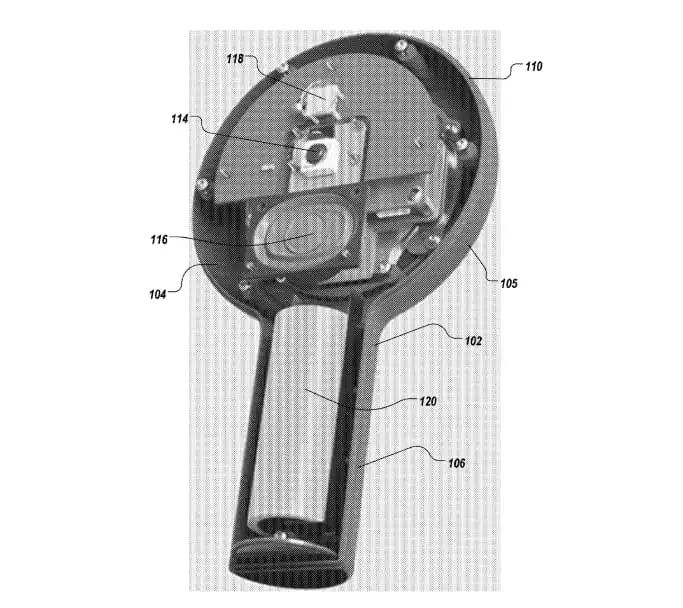Etsy Co-founder Creates 'Magnifying Glass' Style XR Device, You Might Have Missed This Brainwave!

Still using bulky VR headsets to "travel" to the digital world? Recently, Robert Klarich, Etsy co-founder and former CEO, seems to have had enough, choosing another "niche route" that mimics real tools - developing a mobile XR device that looks like a magnifying glass.
This unique project is sparking industry curiosity and discussion: without wearing it on your head or blocking your vision, what makes it eye-catching? What problems does it solve? And could it potentially change our immersive experience habits?
Robert Klarich has always been someone with a very "human-centered" product philosophy. This was true when he founded Etsy, and it's the same with his new technology venture. With this new device called "Loop," he's trying to break the isolation and discomfort that traditional headsets bring to users. Instead of staring at a "virtually reconstructed" world on a screen, why not let digital content naturally embed itself in the space in your hands, like a magnifying glass, for easy interaction and operation?
This small device design might not be stunning, but what it's trying to do is ambitious.
The "Non-Device" Approach of the New Device
Reportedly, "Loop" looks somewhat like a childhood magnifying glass, with what appears to be a handle for gripping, and one side possibly being a screen. Don't underestimate it - this isn't just an ordinary cardboard projector, it's a portable device with battery power, Wi-Fi and Bluetooth connectivity, and NFC functionality. According to FCC approval, it's about to enter the release phase, no longer just a laboratory fantasy.
Even more impressive is its internal structure. Patent documents reveal that Loop contains tracking sensors, cameras, speakers, and microphones, possibly utilizing facial and eye tracking technology to adapt to user position and usage patterns, enhancing interactivity. This might not just be about simply magnifying virtual content, but making the "entry point" between virtual and reality smaller, lighter, and usable anywhere.

No Helmet Needed to See the Virtual World
Imagine this scene: you're walking in a park near your home, pointing this device at a book, and suddenly a virtual teacher jumps out on the screen to explain the content. Or, you let your child use this "magnifying glass" to open a virtual treasure chest containing interesting interactive tutorials.
It emphasizes an experience that "doesn't isolate from the physical environment," aiming to avoid that kind of passive consumption-style remote interaction. This design approach is very fascinating: it's not about wearing something, especially not about throwing away your phone. Does this mean Loop might become the next generation's typical representative of "extended reality"?
The Team's Background Is Not Simple
Don't think this is just a pure creative attempt. Several key figures at Dopple Works, including CTO Jeffrey Chatton, have worked on hardware at well-known companies like PayPal, Apple, Google, Dell, and more.
With FCC approval and considering Klarich's previous attempts at "headset-free" solutions, it's clear this startup isn't just "trying things out," but has carefully considered every step from product concept to technical implementation.
Market Competition Is Still Mild
There are actually quite a few similar solutions to Loop, but most have failed, either due to insufficient immersion or poor user experience ratings. Companies like Kochava that focus on measurement platforms have been looking for new growth points, which also proves from the side that the market is seeking other possibilities beyond headsets.
And Loop's proposed possible solution is the combination of "handheld device" + AI + XR, this fusion logic not only provides a new path for true AR/VR implementation but also redefines the boundaries of the term "extended reality."
Conclusion
Although Loop's form still sounds early, like a magic magnifying glass straight out of a novel, the intention behind it is worth serious consideration. It attempts to let users easily enter another level of interaction in the real world, rather than completely becoming slaves to screens.
Perhaps in the near future, you won't need to wear a helmet to see the virtual world, just pick up this "calculator-sized magnifying glass" when you need it - and the world changes.
分享文章
3篇相关文章
2025, Is the Metaverse 'Dead'? Nvidia and Roblox Smile Silently!
2025-12-30
Fervor recedes, those swimming naked scatter. When Roblox stops talking about Metaverse, when Nvidia quietly profits in factories, the real metaverse is just beginning.
Tearing Open The Metaverse's Blind Spot: Disabled Users Give The Most Unexpected Answer
2025-11-26
Who does the metaverse really belong to? While many dream of a boundless digital world, a new study reveals how disabled people—often invisible in physical spaces—are reshaping what inclusion means online.
Metaverse Travel: A Virtual Adventure About To Rewrite Your Worldview
2025-11-26
The metaverse travel market is surging toward an estimated $276.41 billion by 2034 with a 41.8% CAGR, signaling a revolution in how we explore the world.